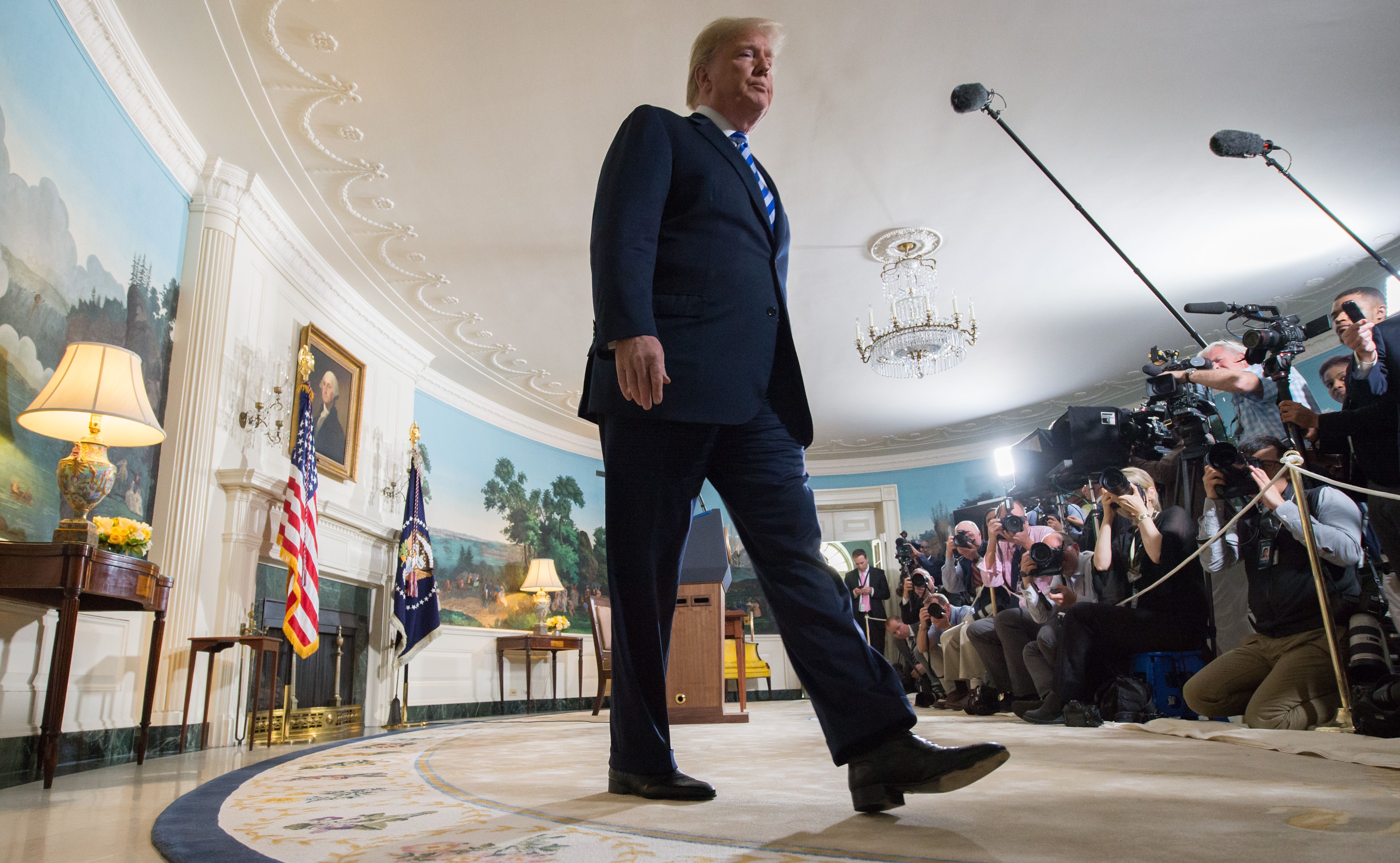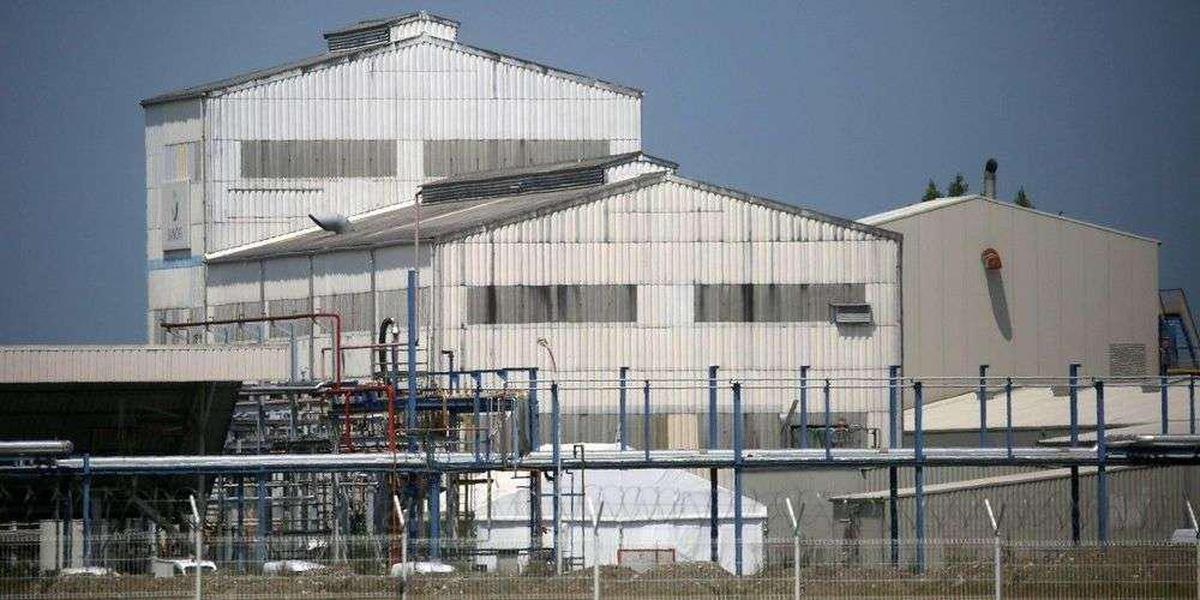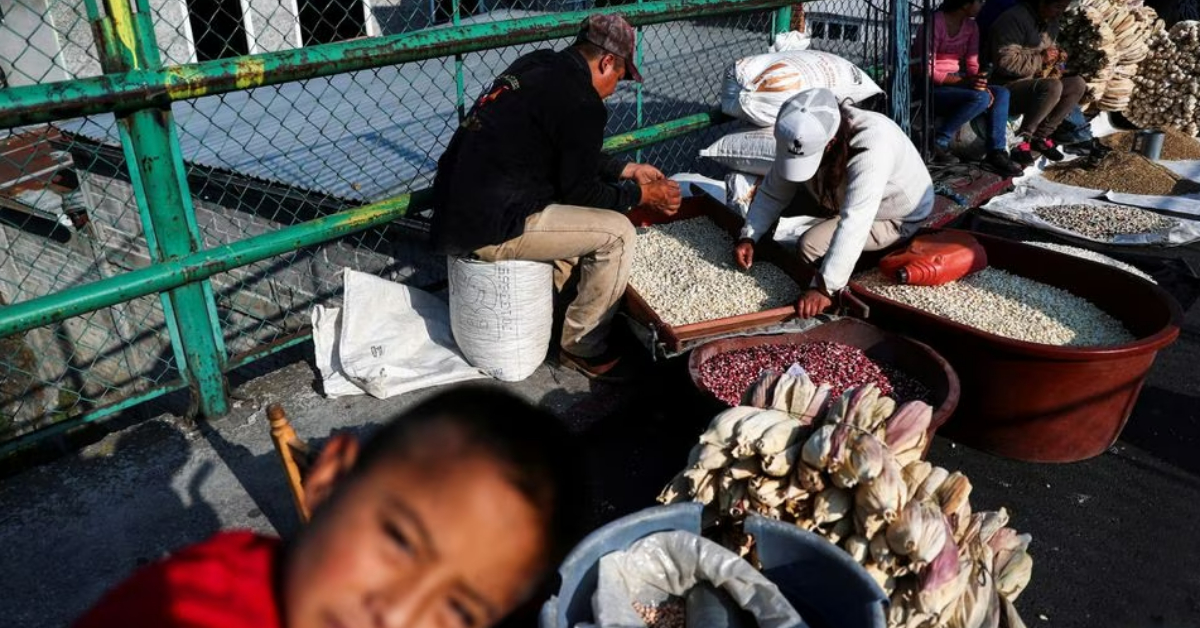Trump's Iran Deal: Will It Box Israel In?

Table of Contents
The JCPOA, signed in 2015, aimed to curb Iran's nuclear program in exchange for sanctions relief. Trump's decision to unilaterally withdraw in 2018, citing the deal's flaws and Iran's continued destabilizing actions, dramatically altered the geopolitical landscape. This article will argue that while Trump's actions haven't necessarily boxed Israel in completely, they have significantly complicated Israel's strategic options and heightened existing security challenges.
Increased Iranian Regional Influence
Trump's withdrawal from the JCPOA unleashed a series of consequences that have boosted Iran's regional influence.
Military Capabilities Enhancement
Following the re-imposition of sanctions, Iran has faced economic hardship but has doubled down on its military ambitions. This is evidenced by:
- Increased ballistic missile development: Iran has continued to develop and test increasingly sophisticated ballistic missiles, expanding its range and accuracy, threatening regional stability.
- Advanced centrifuge technology: Despite sanctions, Iran has continued to advance its nuclear enrichment capabilities, raising concerns about its potential to rapidly produce a nuclear weapon.
- Expansion of the IRGC: The Iranian Revolutionary Guard Corps (IRGC) has expanded its influence and military capabilities both within Iran and across the region. This ongoing Iranian military buildup presents a significant threat.
- Cyber warfare capabilities: Iran has significantly invested in developing and deploying cyber warfare capabilities, posing a substantial threat to regional and international infrastructure. These capabilities present another vector of potential conflict.
These developments contribute to a significant Iranian military buildup, enhancing its regional power projection capabilities.
Proxy Wars and Regional Instability
Iran's increased influence is also evident in its support for proxy groups throughout the Middle East. This support fuels regional instability, creating challenges for Israel:
- Hezbollah in Lebanon: Iran's continued support for Hezbollah in Lebanon allows it to maintain a significant military presence on Israel's northern border.
- Houthis in Yemen: Iran's support for the Houthi rebels in Yemen allows them to disrupt shipping lanes and launch missile attacks against neighboring countries, including Saudi Arabia, a key Israeli ally.
- Syrian Civil War: Iran's involvement in the Syrian Civil War has solidified its presence in Syria, positioning itself near Israel's Golan Heights.
The use of Iranian proxies intensifies Middle East conflict and creates further regional instability, directly impacting Israel’s security concerns.
Israel's Strategic Options and Constraints
Israel faces significant constraints in its response to the heightened threat posed by Iran.
Limited Military Action
While Israel possesses a powerful military, a direct military strike against Iranian nuclear facilities carries immense risks:
- Retaliation: Any preemptive strike could trigger devastating Iranian retaliation against Israel.
- Regional escalation: Military intervention could easily escalate into a wider regional conflict, potentially involving other regional and international actors.
- Uncertainty of success: A military strike may not completely destroy Iran's nuclear capabilities, and could accelerate its pursuit of nuclear weapons. The Israeli military options are carefully calculated to avoid this outcome.
Diplomatic and Economic Pressure
Israel relies on diplomatic and economic pressure, often in coordination with allies:
- US alliance: Israel's strong alliance with the US remains crucial for maintaining its security, but the nature of that relationship can shift with changes in US foreign policy.
- Regional alliances: Israel has strengthened ties with other regional powers, such as Saudi Arabia and the UAE, to build a unified front against Iranian aggression.
- International pressure: Israel participates in international efforts to pressure Iran through sanctions and diplomatic means, using international cooperation to limit Iran’s activities.
Dependence on US Support
Israel's security is inextricably linked to US support. However, shifts in US foreign policy create uncertainty:
- Changing US administrations: Changes in US administrations can lead to shifts in the US approach to Iran, impacting the level of US support for Israel.
- Balancing regional interests: The US must balance its interests in the Middle East, making it difficult to always fully support Israel's stance against Iran.
The US-Israel alliance remains a cornerstone of Israeli strategy, but its stability and effectiveness can be influenced by unpredictable geopolitical shifts.
The International Community's Response
The international community's response to Iran’s actions significantly impacts Israel's position.
Evolving International Relations
The fractured international response to Iran's nuclear program creates uncertainty for Israel:
- UN Security Council: The UN Security Council remains divided on the issue of Iran, making it difficult to impose strong and effective sanctions.
- European Union: The EU is attempting to salvage the remnants of the JCPOA, often adopting a less confrontational stance towards Iran than the US and Israel.
The international response's fragmented nature leaves Israel strategically vulnerable, limiting the effectiveness of multilateral diplomatic efforts.
Conclusion: Is Israel Boxed In by Trump's Iran Policy?
Trump's withdrawal from the JCPOA, while aiming to curb Iranian aggression, has undeniably created a more complex and dangerous environment for Israel. While not entirely boxed in, Israel’s strategic options are constrained by increased Iranian military capabilities, regional instability fueled by Iranian proxies, and an uneven international response. The dependence on US support, while vital, introduces an element of uncertainty. Ultimately, the long-term impact of Trump's Iran deal – or lack thereof – on Israel's security remains a significant concern. Understanding the complexities of Trump's Iran deal and its impact on Israel's security is crucial. Continue your research to form your own informed opinion on the implications of this pivotal geopolitical decision.

Featured Posts
-
 Rosemary And Thyme A Culinary Herb Guide
May 31, 2025
Rosemary And Thyme A Culinary Herb Guide
May 31, 2025 -
 Rejets Toxiques A Mourenx Sanofi Fabricant De Depakine Mis En Examen
May 31, 2025
Rejets Toxiques A Mourenx Sanofi Fabricant De Depakine Mis En Examen
May 31, 2025 -
 May 23rd Orange County Sports Game Results And Player Performance
May 31, 2025
May 23rd Orange County Sports Game Results And Player Performance
May 31, 2025 -
 Spannende Raetsel Erwarten Sie Das Neue Escape Spiel Im Mueritzeum
May 31, 2025
Spannende Raetsel Erwarten Sie Das Neue Escape Spiel Im Mueritzeum
May 31, 2025 -
 Spanish Inflation Slowdown Exceeds Forecasts Hints At Ecb Rate Reduction
May 31, 2025
Spanish Inflation Slowdown Exceeds Forecasts Hints At Ecb Rate Reduction
May 31, 2025
